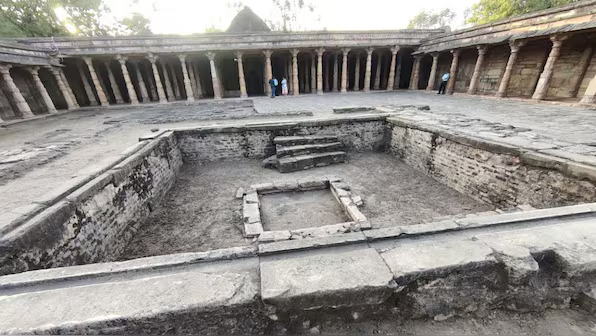The dispute over the Bhojshala-Kamal Maula Mosque complex in Dhar district, Madhya Pradesh, has been ongoing for years. This historical site has become a point of contention between Hindu and Muslim communities. Recently, the Archaeological Survey of India (ASI) submitted a scientific survey report on this disputed site to the High Court. In this article, we will discuss this issue in detail.
Background of the Scientific Survey
The Madhya Pradesh High Court’s directive on March 11 mandated the Archaeological Survey of India (ASI) to initiate a comprehensive scientific survey of the Bhojshala-Kamal Maula Mosque complex. Commencing the survey on March 22, ASI encountered complexities necessitating two extensions granted by the High Court to ensure thoroughness. After meticulous examination and analysis, ASI diligently compiled and presented its comprehensive findings in a detailed report to the High Court, effectively concluding this phase of the court-mandated investigation by July 15.
Bhojshala-Kamal Maula Mosque Dispute
The dispute over the Bhojshala-Kamal Maula Mosque complex dates back centuries, rooted in differing religious perceptions. Hindus venerate it as the temple of Vagdevi, also known as Saraswati Devi, while Muslims recognize it as Kamal Maula Mosque. Efforts to settle the discord included an ASI directive on April 7, 2003, permitting Hindus to conduct worship on Tuesdays and Muslims to pray on Fridays. However, this measure faced opposition from the ‘Hindu Front for Justice,’ highlighting the ongoing legal and social complexities surrounding the site’s religious significance.
High Court Order and Scientific Survey
On March 11, the High Court’s directive mandated the Archaeological Survey of India (ASI) to initiate a comprehensive scientific survey within a six-week timeframe. Commencing promptly, ASI encountered complexities necessitating an extension. Consequently, the High Court granted an additional eight weeks until July 2 for completion. ASI, facing ongoing challenges, sought yet another extension, compelling the High Court to issue a definitive order for submission by July 15. This sequence underscores the meticulous nature of the survey and the judiciary’s commitment to a thorough and informed decision-making process regarding the Bhojshala-Kamal Maula Mosque complex dispute.
Role of the Supreme Court
On April 1, the Supreme Court dismissed a plea to stop the scientific survey of Bhojshala but emphasized that any actions stemming from the survey findings must await its approval. This directive followed a petition by Maulana Kamaluddin Welfare Society, contesting the Madhya Pradesh High Court’s March 11 mandate. The court’s decision underscored its role as the ultimate arbiter in ensuring that the survey’s outcomes are handled judiciously and in accordance with legal protocols, highlighting the sensitivity and significance of the ongoing legal and cultural debate surrounding the Bhojshala-Kamal Maula Mosque complex in Dhar district, Madhya Pradesh.
Conclusion
The Bhojshala-Kamal Maula Mosque dispute is a complex issue intertwined with religious and cultural sentiments. ASI’s scientific survey report could play a crucial role in resolving this dispute. The High Court is scheduled to hear arguments on the report on July 22, which will likely determine the future course of this dispute. It is crucial that any decision by the court be just and balanced, fostering peace and harmony between both communities.
Considerations
The resolution of this dispute requires not only legal procedures but also dialogue and understanding. It is essential to consider historical and archaeological evidence alongside social and cultural interests. Hopefully, the court’s decision will be fair and equitable, contributing to peace and goodwill in society.
ALSO READ: “Arvind Kejriwal might go into a coma”, said Sanjay Singh. But Why?
